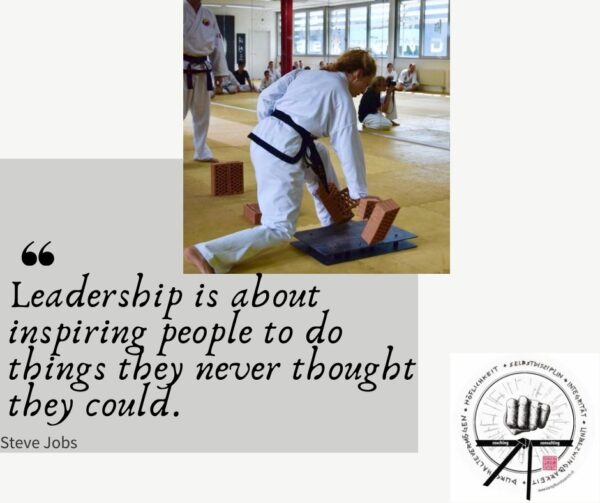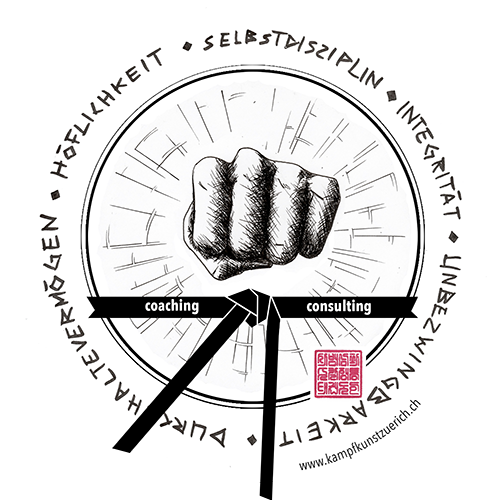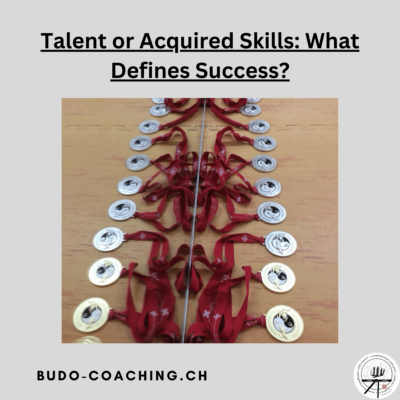Open up to your world of possibilities Do you find yourself constantly worrying about what…

Team success: three leverages that effective leaders use
I recently talked to an ex-colleague: she works as a manager in a telecommunications company and, as usual, she used a lot of abbreviations. I didn’t know one yet: VUCA.
We talked about what makes a team successful in the VUCA World and came to the conclusion that effective managers rely on commitment, resilience and self-efficacy – with a system.
But first…..
What does VUCA mean?
The acronym stands for volatility, uncertainty, complexity and ambiguity – and yes, the description is very appropriate for the telco industry. https://en.wikipedia.org/wiki/Volatility,_uncertainty,_complexity_and_ambiguity
Course changes, quick decisions and the “trial and error-mode” shape the days.
It’s very exciting environment actually: I found, you can have a huge impact and learn new things all the time. However, the fast pace also causes uncertainty and frustration among many employees.
The telecommunications industry is especially volatile. Technologies and offers are already outdated just after a couple of months after launch, the competition on the market is fierce, the margins are getting smaller and smaller: the customer gets more data volume, service, coverage, faster lines – for less money. While customers are hard to please and retain, the pressure to achieve revenue is high.
Such short product lifecycles do not allow much time for considered decisions or long market analysis. In the VUCA world decision makers have to work under pressure, react quickly to market changes, and still guarantee quality and excellent services, by using resources efficiently.
Silke is currently asking herself how she can lead successfully, keeping true to herself and her own team, and at the same time meeting the overall corporate goals. It is a balancing act between staying innovative and flexible and still ensuring perspectives, stability and well-beeing for her employees.
In the Dojang or on the office
Eventually, we agreed that people, whether at work or with us in Dojang, basically need the same things to develop: They want to be part of a strong community where they feel valued and where they can develop further. Without fear of making mistakes or expressing a different opinion.
💡What do you do to create an atmosphere in your team in which everyone can grow, safe and valued?
First of all, you need a system – the framework
You need a stable structure as a foundation, a system with clear framework: within this system your employees can then develop and contribute their expertise.
As a manager, you provide such framework, you show the direction, and your employees shape the path independently and according to their skills. This creates an environment where each can be developed.
Silke and I dwelled briefly on the comparison to the systems in the martial arts. In the martial arts the framework is just as clear: the building blocks are the basic techniques; the belt colors show the level and progress; everyone knows values, rituals and dojang etiquette. The foundation is stable and deeply rooted. The master responds to each student individually and encourages them to give their best.
💡 Are the framework conditions - roles, tasks, goals, mission clearly defined in your team? 💡 Does your system work even if you are absent?
In the dojang (practice room) the master is there for everyone as a guide. The master stretches the students just enough for them to learn and be challenged. He makes sure that the students get out the best out of themselves without being overwhelmed, according to their abilities. The students are supported to gradually exceed his own limits and is constantly developing.
Like the students in a dojang, the employees in a company go through learning and development levels that motivate them and drive them forward.
The most effective leaders use a similar approach. By understanding the strengths and improvement needs of each individual in the team, they are able to push them to give their best while building on new abilities.
Good teams can count on mutual support and trust. They know that together they can still save a project which is stuck or delayed; they also know how to learn from failures and pick up from there for the next attempt.
If the system in place is clear, with a given framework and the right mind-set, you can improve by strengthening your workforce satisfaction by leveraging on the following 3 areas:
✅ Engagement
✅ Resilience
✅ Self-confidence
LEVERAGE 1 – Increase engagement
As a manager, you should involve the team in your vision right from the start and, above all, agree on goals and sub-goals.
👉Encourage your employees to think in terms of solutions and to get involved.
Actively involving your team in processes has many advantages. Besides leading to a higher level of commitment and better performance, the mutual support cultivates something even more essential: trust.
👉 Listen and take the time to talk to your employees. Show them that you care
👉Giving and receiving feedback is important for good cooperation, and, by the way, from a role model function and not from a position of power.
👉 Assume that everyone in your organization- regardless of personal background or title – looks at the same issue from a different perspective and can lead to alternative solutions and smart ideas.
👉Employees are looking for meaningful tasks, want to understand the background of your decision, contribute and help shape results. A well-informed team can react faster to possible changes in course, with more understanding and less loss of time and resources.
LEVERAGE 2 – Train resiliance
Think about what measures you could take to give your employees the appropriate “stretch” to encourage them and take them to the next level. Which drivers can you use?
Some people often stay in their comfort zones, the areas where they feel safe. In that case, they need a little more incentive to overcome their fears and resistance to change.
👉 Provide access to deputy experiences
👉 Gradually expand the area of responsibility / range of tasks
👉Network your employees with one another in such a way that their resilience is strengthened through shared projects and experience.
👉Lesson learned: accept mistakes and failures in your team, they are teachers. Take the time to analyze set-backs from different angles and use the learnings to improve your team performance.
LEVERAGE 3 – Boost self-confidence
Self-confidence means knowing that we can do something, using our skills in the best way. Your employees’ trust in themselves and in their abilities changes over time and depends, among other things, on their acquiring knowledge and experience. The more success stories they experience, the more confidence they build.
👉Be there as an example and mentor
👉 Encourage cross-departmental collaboration. The complexity of the VUCA world requires extensive knowledge in many specialist areas. It takes teams that bring together expertise from different functions and areas to succeed.
👉Do not micro-manage, let go
👉Celebrate achievements, acknowledge good performance and show true appreciation.
👉If you are confident that your employees can achieve the tasks you assign, if you trust them, tell them so!! They need to hear it!
It is common knowledge that what other people say about us influences our own self-assessment. When others believe we can be successful, they often convince us of it. This is the Pygmalion Effect, when someone believes in us, we believe in ourselves and succeed.
💡 At what point are you at with your team? Are you ready to discuss leadership issues and question your system? Are your employees committed and well equipped for the VUCA World?
We have summarised a few thoughts for you in our free guide. You can get it just by filling out the contact form.
We are glad if you have found impulses that inspired you to initiate positive changes.
If you would like to question your leadership more in-depth and the impact on your team, we would be happy to support you further with our Budo Coaching method.
We help you with movement and learnings from the martial art reflect on your leadership to improve your grip on yourself and your resources.
Register here for our Leadership Training or have a look at our coaching programs.
Contact us for more extensive advice or discuss your specific training need. Contact



